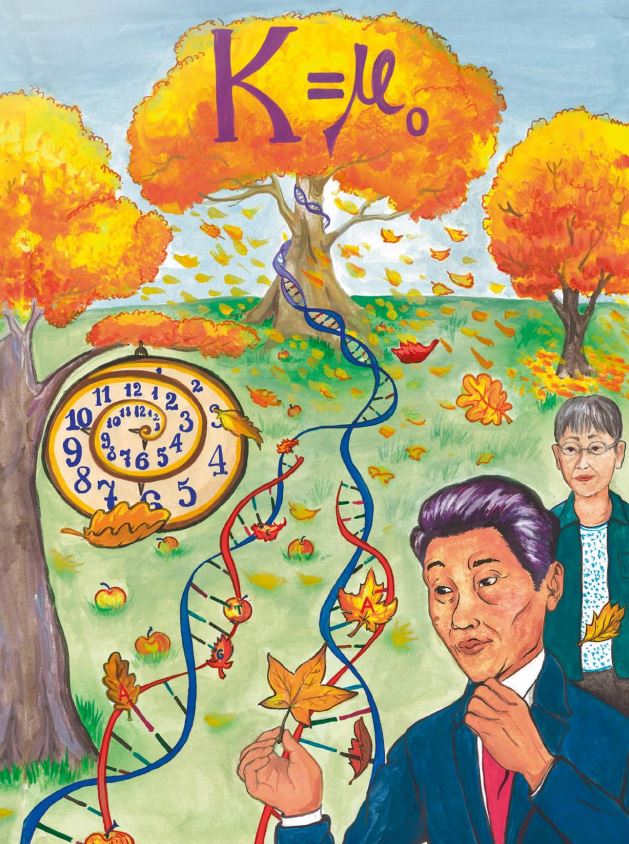
Antonio Barbadilla: 1968-2018 Fifty years of Neutral Theory
Fifty years ago, at the time when the genetic diversity of natural populations began to be measured, the Japanese geneticist Motoo Kimura suggested a radical alternative to explain the patterns of variation and substitution of proteins: the neutral theory of molecular evolution, which assumes that most of the existing polymorphisms and the fixed genetic differences between the species are selectively neutral and functionally equivalent. Kimura’s neutral theory encapsulates molecular evolution in one of the most simple mathematical expressions of science: K = mu. If variants are neutral, the population level is irrelevant to molecular evolution, since the evolutionary rate depends (K) on the mutational rate (mu) only. Later, Tomoko Ohta expanded the explanatory power of neutral theory by adding nearly neutral mutations. Because of its simplicity, intelligibility, robustness, and feasible theoretical predictions, the (nearly) neutral theory of molecular evolution became enthroned as the universal null model against which to test any selective hypothesis. This talk aims to be a celebration of the half-century of neutral theory and a tribute to their main authors, Kimura and Ohta.
Hace cincuenta años, cuando se empezó a medir la diversidad genética de las poblaciones naturales, el genetista japones Motoo Kimura sugirió una alternativa radical para explicar los patrones de variación y sustitución de proteínas: la teoría neutralista de la evolución molecular, que propone que la mayoría del polimorfismo genético y las diferencias genéticas fijadas entre las especies son selectivamente neutras y funcionalmente equivalentes. La teoría neutralista de Kimura encapsula la evolución molecular en una de las expresiones matemáticas más simples de la ciencia: K = mu. Si las variantes son neutras, el nivel de población es irrelevante para la evolución molecular, ya que la tasa evolutiva (K) depende de la tasa de mutación (mu) solamente. Más tarde, Tomoko Ohta amplió el poder explicativo de la teoría neutralista al incluir las mutaciones casi neutras. Debido a su simplicidad, inteligibilidad, robustez y predicciones teóricas, la teoría (casi) neutralista de la evolución molecular se entronizó como el modelo nulo universal frente al que probar cualquier hipótesis selectiva. Esta charla pretende ser una celebración del medio siglo de existencia de la teoría neutralista y un homenaje a sus principales protagonistas, Kimura y Ohta.
Readings
- Evolutionary Rate at the Molecular Level. Motoo Kimura. Nature volume 217, pages 624–626. 1968
- THE NEUTRAL THEORY OF MOLECULAR EVOLUTION. Motoo Kimura. Oxford University Press. 1983.
- MOLECULAR POPULATION GENETICS. S. Casillas and A. Barbadilla. Genetics 205: 1003–1035. 2017
- 50th ANNIVERSARY OF THE NEUTRAL THEORY OF MOLECULAR EVOLUTION. Special reprint issue celebrating the neutral theory. Molecular Biology and Evolution. July 2018.
- The Neutral Theory in Light of Natural Selection. Kern, A.D. & Hahn, M.W. Molecular biology and evolution 2018 35:1366-1371
- The importance of the Neutral Theory in 1968 and 50 years on: A response to Kern and Hahn 2018. Jensen, J.D., Payseur, B.A., Stephan, W., Aquadro, C.F., Lynch, M., Charlesworth, D. & Charlesworth, B. (2019) Evolution 2019 73:111-114
- La teoría neutralista de la evolución molecular, medio siglo después. Barbadilla, A.; S. Casillas & A. Ruiz. 2019. Investigación y Ciencia. Págs. 52-59. Febrero 2019.
Speakers
-
 Antonio BarbadillaResearch Professor
Antonio BarbadillaResearch ProfessorIBB, Departament de Genètica i de Microbiologia


